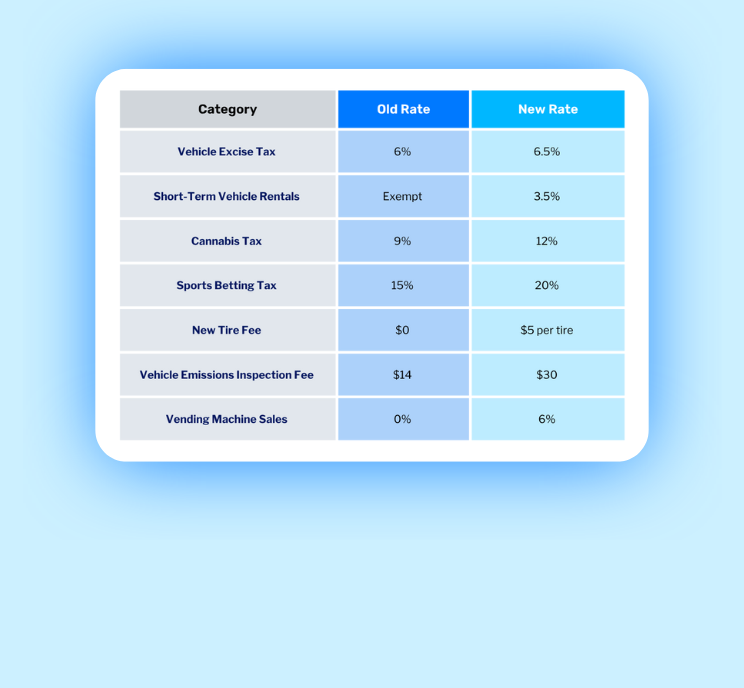SC&H’s Key Takeaways
- Certain business interest expense has been limited to 30% of adjusted taxable income (ATI) since 2018 under TCJA. The limitation has now been raised under the CARES Act to 50% of ATI for 2019 and 2020 for many business entities and individuals.
- Taxpayers may elect to use 2019 ATI when computing the limitation for 2020 returns.
- For partnerships, there are special rules which will allow 50% of a partner’s share of disallowed interest from 2019 to be fully deductible in 2020.
The recently signed Coronavirus Aid, Relief, and Economic Security Act (CARES Act, H.R. 748) included an important adjustment to the Sec. 163(j) business interest expense limitation, which was only recently enacted by the signing of the Tax Cuts and Jobs Act of 2017 (TCJA). This new limitation on excess business interest expense was, for many taxpayers, effective for tax years beginning after Dec. 31, 2017 and was scheduled to sunset after December 31, 2025 with increasing restrictions beginning in 2022.
For tax years beginning on or after January 1, 2018, new Sec. 163(j) provided that business interest expense, with several exceptions, was only deductible to the extent the deduction was less than 30% of the adjusted taxable income (ATI) of the business. ATI was defined as EBITDA – net taxable income after adding back interest expense, taxes, depreciation and amortization. Excess business interest expense would be carried over for an unlimited number of future years subject to the same annual limitation by corporate taxpayers, S corporations and individuals. The rules for partnerships under this code section are rather complex and beyond the scope of this article, but essentially partnerships with excess business interest expense would allocate the disallowed interest expense to its partners, who then carried those amounts forward and could only deduct them in future years when the same partnership has excess taxable income.
CARES Act Impacts
On March 27, 2020, President Trump signed the CARES Act in hopes of relieving economic pressure brought on by the growing COVID-19 pandemic. There are three ways that the CARES Act made interest deductions less restrictive for 2019 and 2020.
- The limit was raised from 30% of ATI to 50% for tax years 2019 and 2020 for all taxpayers except for partnerships. Impacted businesses and individuals may elect to not apply the 50% limitation to either 2019 or 2020 if they choose. Clients who would have negative impact from a larger interest deduction would likely be those facing issues with IRC 59A (BEAT) and Global Intangible Low-Taxed Income (GILTI). This election is irrevocable. Taxpayers who had business interest limited under 163(j) in 2019 should consider filing amended returns to generate tax refunds.
- All taxpayers subject to IRC 163(j) may elect for tax years beginning in 2020 to utilize their 2019 ATI when computing the 50% limitation. Obviously, the intent here is to factor in that many businesses will see their net income fall in 2020, so this election can allow for a greater deduction than would otherwise be calculated. This election is made at the entity level for partnerships, corporations and S corporations.
- The last change impacts partnerships, and as is often the case, it is more complicated than for other business entity types. For 2019, partnerships must use the 30% limitation. The CARES Act will allow partners with disallowed business interest expense carryovers from 2019 to deduct half of that carryover amount in 2020, free from further limitation. The residual carryover is then still subject to the 163(j) limitations, and thus carried over until the partnership that allocated disallowed business interest expense allocates them excess taxable income. Partnerships may elect to utilize 2019 ATI if that produces a larger deduction in 2020 as discussed above.
It is uncertain how states will react to the changes under the CARES Act. At this time, the changes would only apply to those states that automatically incorporate amendments to the Code. Many states would need to enact specific legislation to follow these changes. Taxpayers should monitor decoupling actions taken by states.
Once we get closer to 2021, taxpayers will want to revisit the 163(j) limitations for two key reasons:
- The 2021 limitation will drop back to 30% of ATI.
- In 2022, ATI will be redefined as taxable income plus interest expense – there will no longer be an adjustment for depreciation and amortization, which will trap many more taxpayers.
Please contact the SC&H Tax Team for further advice or questions.




